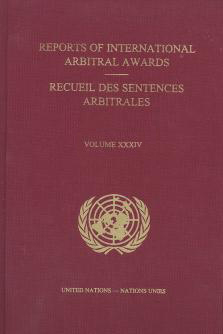Article 38 (1) of the Statute of the International Court of Justice, often referred to as setting out the sources of international law reads:
(a) international conventions, whether general or particular, establishing rules expressly recognized by the contesting states;
(b) international custom, as evidence on general practice accepted as law;
(c) the general principles of law recognized by civilized nations;
(d) judicial decision and the teachings of the most highly qualified publicists of the various nations, as subsidiary means for the determination of rules of law.
Other sources also exist, such as binding decisions of international organisations and unilateral acts.
This guide should be a starting point and is by no means comprehensive. It focuses on providing sources in the following areas:
The section above on Treaties and the sections below on United Nations also deal with state practice and customary law. The Library collects various yearbooks on international law which may be searched for on Te Waharoa. Heinonline's Foreign and International Law Resources Database includes many of these although not complete runs.
The ILC was established by the General Assembly, in 1947, to undertake the mandate of the Assembly, under article 13 (1) (a) of the Charter of the United Nations to "initiate studies and make recommendations for the purpose of encouraging the progressive development of international law and its codification". The ILC website has its documents, reports, and yearbooks available. The research link is a good place to start.
Please note that large collections of electronic journals which are included in Westlaw and Lexis Advance are not accessible through Te Waharoa. For more details see How do I find journals articles or contact the Law Librarian.
The recommended journals in this area are:
The recommended yearbooks in this area are:
 Reports of International Arbitral Awards
Reports of International Arbitral Awards
Victoria University of Wellington became a depository for United Nations documents in the mid 1970s. Most documents are available electronically from 1996 onwards. The materials produced by the United Nations fall into two main categories: documents and sales publications.
Are the working papers of the organisation, the records of meetings, resolutions, letters and reports. There are two types of documents Masthead Documents and Official Records.
Masthead Documents include documents written primarily for UN bodies and governments of member states and the common types include the following:
The length of Masthead Documents vary, while resolutions typically consist of a single page, other reports may be over 100 pages in length. Their quality is also uneven, some reports in this category are regarded as the definitive documents on their subject, while others, such as those prepared by member governments or special interest groups may contain bias. Masthead Documents may be re produced as Official Records as for instance Security Council Official Records.
The Official Records are not a single entity but rather a group of serial titles sharing certain characteristics. They include the proceedings of the major UN bodies in verbatim or summary form. The General Assembly and Economic and Social Council Official Records include supplements and annexes and are particularly useful as they also include the annual reports of most of the organisation's subsidiary bodies such as the Report of the International Court of Justice to the General Assembly and collections of Resolutions and Decisions for the session. The annexes typically include lists of documents, arranged by agenda item, which may be used as subject bibliographies.
Sales Publications are the more substantial reports that the United Nations publishes on a variety of topics. United Nations Sales publications in the area of international law are:
The United Nations has created a research guide to its documentation on international law. Another useful site is the Codification and Progressive Development of International Law. This site provides full text to many of the sales publications listed above, which may be searched individually or you may search across all the publications with the global search.
The International Law Commission was established by the General Assembly, in 1947, to undertake the mandate of the Assembly, under article 13 (1) (a) of the Charter of the United Nations to "initiate studies and make recommendations for the purpose of encouraging the progressive development of international law and its codification". The ILC website has its documents, reports, and yearbooks available on its website, the research link is a good place to start.
Human Rights is too large a topic to do justice to here, however an excellent place to start your research is with Office of the High Commissioner for Human Rights website. Use the Human Rights by Country tab, to find the latest reports by a state.
Each UN document has a unique identifying symbol made up of letters and numbers. This symbol is usually located on the top right 'shoulder' of the document. This symbol must be used when citing a UN document.
Document symbols reflect the body issuing the document, rather than the subject area. Find out more about UN Document symbols here.
The United Nations Digital Library is the catalog of the UN libraries in New York and Geneva, as well as being able to search documents and publications, you are also able to search for voting records, speeches, images and sounds, and maps. The library records link through to full text where possible. You can browse the publications of particular UN bodies, and there is an advanced search option available. UNBISnet is the earlier version and is still available.